Throughout this series I have endeavored to bring to your attention some of the major themes that problem composers use. So far, though, there is one big one that has not been featured. I am referring to Allumwandlung, typically abbreviated AUW. This is a German word that translates loosely as “All conversion.” To chess composers it refers to a problem in which promotions to all four pieces (queen, rook, bishop and knight) appear in the course of the problem. A lovely example appears in the current issue of The Problemist, which is the official magazine of The British Chess Problem Society. This problem was composed by Jorma Pitkanen in 2012, and just received the second prize in The Problemist's annual tourney for selfmates. The problem calls for selfmate in three moves:
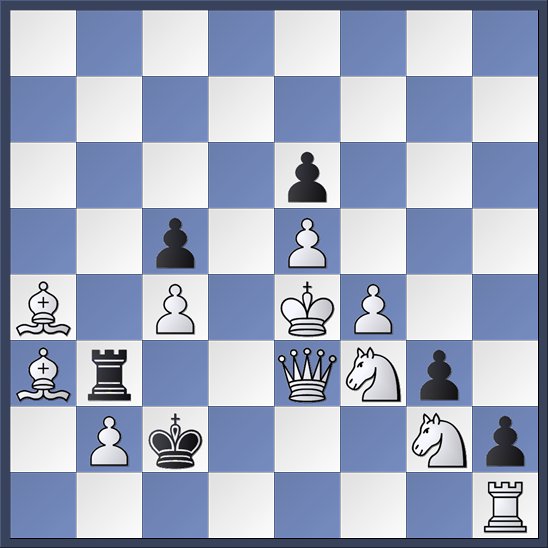
Recall that in a selfmate, white plays first and will force black to give checkmate. Black, for his part, will do everything he can to avoid giving mate. It's a complete inversion of normal chess logic!
Also recall that when we write down chess moves, vertical files are labelled a--h from left to right, while horizontal ranks are numbered 1--8 from bottom to top. So, in this position, the white king is on e4 while the black king is on c2.
As we look for the solution, the first thing we see is that black is stalemated. That means white's first move will have to give black a move. Since unpinning the rook seems unlikely to bring success, our eyes fall on the white rook on h1. By moving, it will free up the black h-pawn, which could then promote on the next move. The rook's destination square is unclear, but it will turn out that only going corner to corner will do. The key move is 1. Ra1!
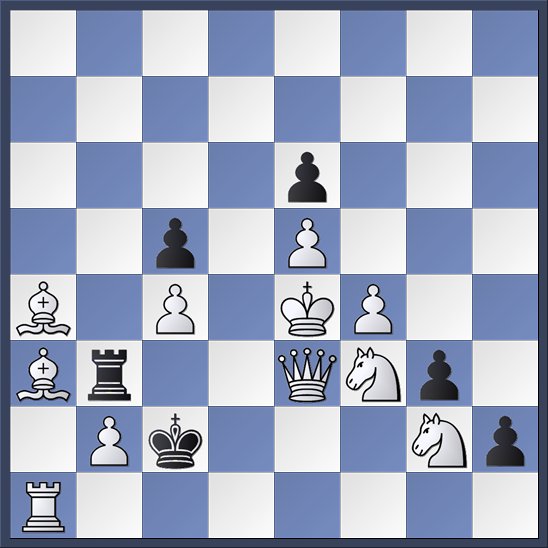
The AUW now occurs as black promotes to each of his four options. After 1. ... h1Q:
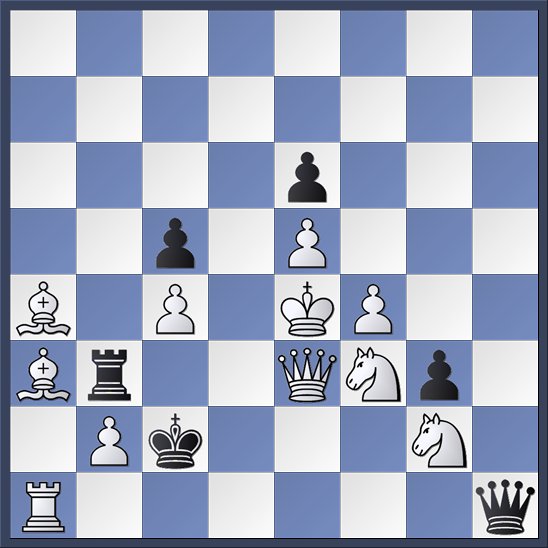
white replies with 2. Qc1+ Qxc1 3. Ne3+ Qxe3 mate.
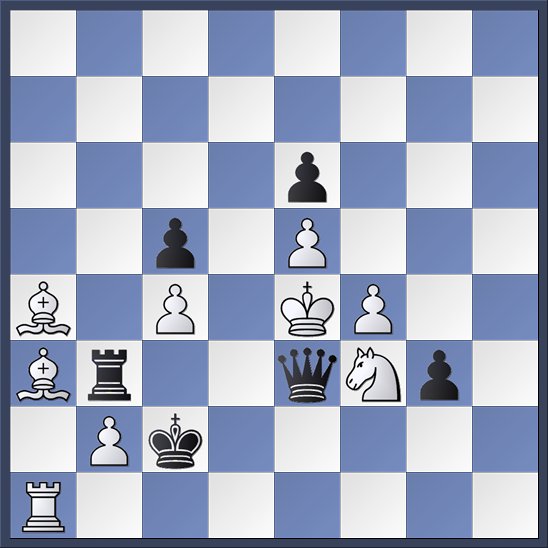
After 1. ... b1R:
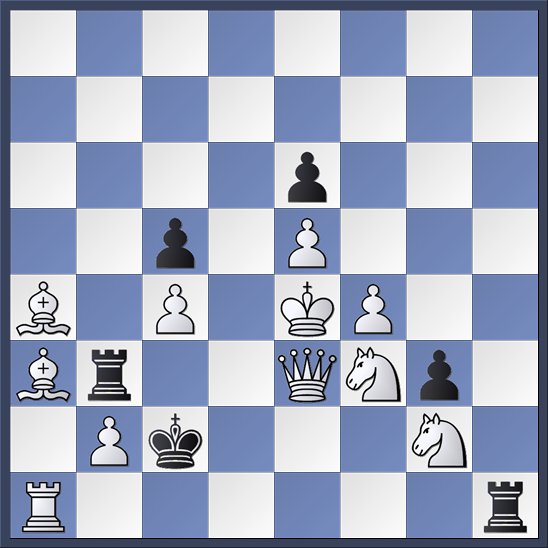
white has 2. Nge1+ Rxe1 3. Qe2+ Rxe2 mate.
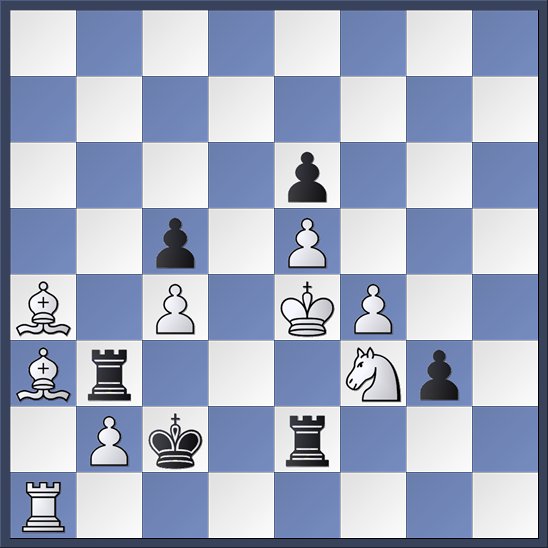
Notice that this variation would have been ineffective against the queen promotion. The reason is that after 3. Qe2+ black would not have been forced to take the queen, since 3. ... Qd2 would have been an option. Remember, we're in selfmate country here, where black is trying desperately to avoid giving mate.
How does white handle the bishop promotion 1. ... h1B?
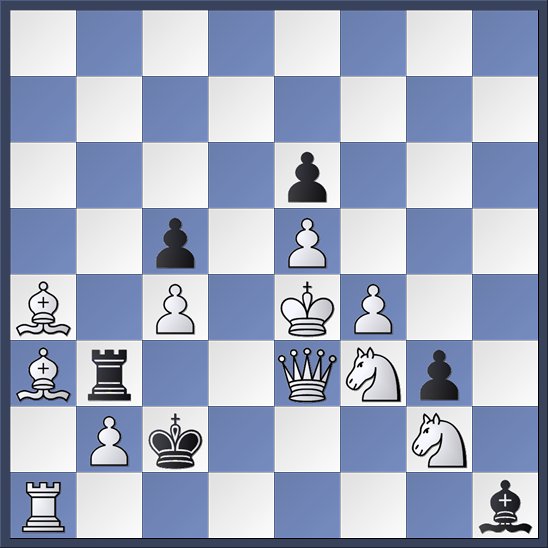
He plays 2. Nd4+ cxd4 3. Qxd4 Bxg2 mate, of course!
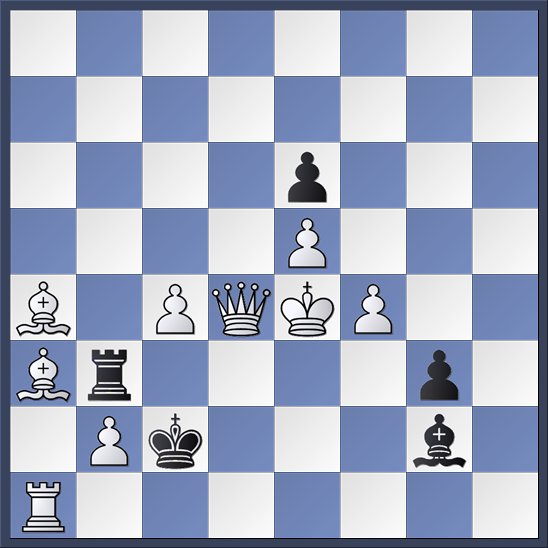
There's a interesting change of approach with this variation. In the first two lines, white made black do his bidding by putting him in check in such a way that black's only way of getting out of check involved giving mate. In this variation, by contrast, white simply had black so tied up in knots that his only legal move just happened to give mate.
That approach appears again in the knight variation. After 1. ... h1N:
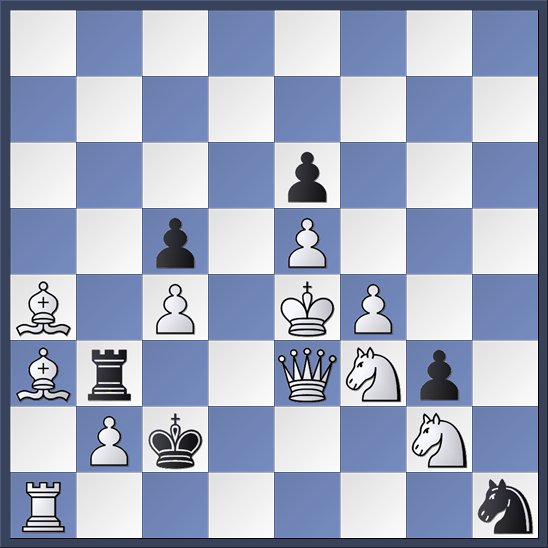
White uncorks 2. Qf2+ gxf2 3. Rf1 Ng3 mate.
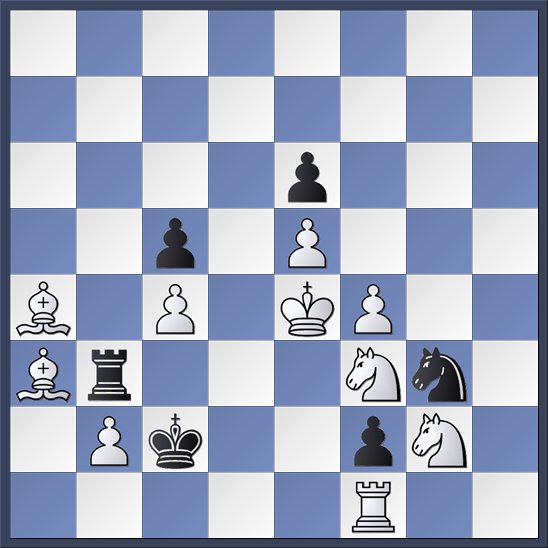
Of course, black could have taken the queen with the knight on move two, but that would have been mate on the spot.
A beautiful problem, and a crystal clear example of AUW. We'll see other examples in the coming weeks. Stay tuned!

Allumwandlung isn't actually a word in German I know they have a tendency towards compound nouns, but that's not one of them.
Once again, very nice presentation of the problem's features. I'm especially enchanted with the only-available-move-mating touch of this one.
Novo--
Well, I guess that's why Google translate asked me if Meant “All umwandlung.”
Bill--
Glad you liked it!